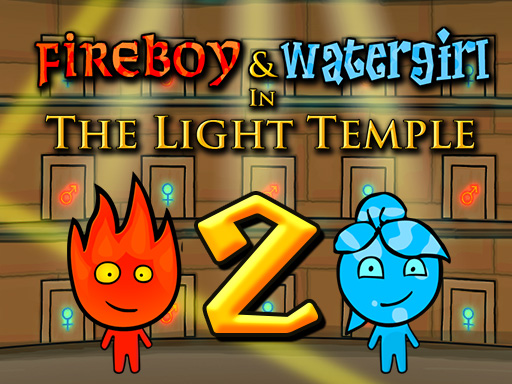Click fast, count costs, and decide what you’ll sacrifice
Scrape together funds before the deadline
A clicker where conscience is your rarest currency
In BloodMoney, you inhabit the life of Harvey Harvington, an exhausted musician who has run out of time, options, and, most critically, money. Every tap advances the clock, fills the piggy bank, and nudges Harvey toward outcomes that will either save a life or unravel everything that still matters to him. Unlike idle games that simply reward throughput, BloodMoney treats each decision as a trade—minutes for dollars, dignity for shortcuts, calm for chaos. The mechanics feel immediate and accessible, but the implications linger long after the final bill is paid.
What sets BloodMoney apart is how it frames the grind. You are never just farming numbers. You’re juggling pressure, fatigue, and relationships while choosing what kind of person Harvey becomes under crushing urgency. The result is a compact narrative clicker that turns each small action into a moral equation. Keep your head down with straightforward work and slow gains, or flirt with fast cash that leaves marks you can’t easily erase. The interface is simple; the impact, anything but.
Hustles with personality—and consequences
Each board in BloodMoney presents a spread of jobs, favors, and one-off opportunities. Some are steady but dull: busking at the same corner, cleaning venues after midnight, delivering gear for the band that forgot you’re on hiatus. Others pulse with quick returns: opaque gigs with too-good-to-be-true payouts, errands that ask you to ignore the voice that says this isn’t wise. The elegant balance of risk and reward pulls you forward, but the game never lets you dodge the cost. Stress climbs as you chase overtime. Sleep becomes a luxury. Friends check in and drift away based on how often you answer or vanish. BloodMoney keeps score in dollars and in the invisible currencies that we burn to survive.
As you learn the rhythms of BloodMoney, you’ll notice that the safest path rarely reaches the target in time, and the fastest track rarely leaves Harvey intact. That tension is the engine. The timer isn’t just a countdown; it’s a character that demands attention. The cash goal isn’t just a number; it’s a boundary line between hope and catastrophe. Your job is to manage the tension creatively: chain smaller gigs to avoid a spiral, invest in a tool that unlocks cleaner payouts later, or take one sharp risk and plan to recover before the fallout lands.
Systems that tell a story without long cutscenes
Story in BloodMoney emerges from stats in motion. Stress rises after back-to-back shifts. Fatigue blurs inputs and lowers the quality of your choices. Reputation opens doors with a few characters and slams them with others. The design trusts you to read what the meters imply and anticipate the next domino. Dialogue is swift and sharp, a handful of lines that frame a situation rather than dictating how to feel. You’ll feel its weight when a simple check-in text arrives just as you’re deciding whether to accept a dubious offer. You’ll feel it when the inbox goes silent after too many missed calls. BloodMoney gives you space to project your own reasoning onto Harvey’s world, which makes its endings feel earned rather than assigned.
Short sessions, long echoes
You can finish a full run of BloodMoney in a single evening, then return to chase different branches. One night you might steer through cautious work and end with a tight but lawful victory. Another night you might gamble early, stack cash, and spend the rest of the run patching the missed sleep, the frayed nerves, the awkward conversations that follow. The clicker loop stays taut—select, confirm, collect, reassess—but the emotional loop stretches further, asking whether the path you carved is the one you’d choose again if you had even a little more time. The compact scope makes experimentation inviting, and the branching outcomes reward players who test the edges.
How to think like a survivor, not just a grinder
Approach BloodMoney with a plan. Early on, prioritize steady gigs that unlock better tools or contacts. Slow money buys stability, which buys sharper decision-making. When the target feels out of reach, consider one controlled risk rather than a string of reckless moves. Watch how stress compounds across hours and how fatigue distorts the math—both exist to knock you off autopilot. BloodMoney teaches you to pace the sprint: two small steps forward can outperform one dramatic leap that ricochets through your schedule.
Keep an eye on relationships. A well-timed conversation can open a side route that pays more cleanly than any shadowy shortcut. Ignore too many messages and opportunities wither. The simplest way to ‘win’ in BloodMoney is to protect Harvey’s decision quality, which means buying enough rest, maintaining a sliver of goodwill, and not letting panic spend your future for you. The game’s UI surfaces these tradeoffs with clarity: meters shift, timers flash, and tiny pop-ups hint at what each choice will cost beyond its immediate payout.
Multiple endings that reflect your ledger of values
When you finally hit the goal in BloodMoney, the result isn’t a single trumpet blast. It’s a mirror. Did you keep your integrity intact but barely scrape past the line? Did you hit the number early and discover the damage elsewhere? Did you miss, not because you were careless, but because you chose not to cross a boundary? Every ending recalculates the past few hours with new light. The structure encourages replay, not to check boxes, but to examine which compromises feel acceptable when the clock is merciless. As you iterate, you’ll discover small efficiencies and subtle tells that make later runs smoother without numbing their impact.
Minimalist style, maximal pressure
The visual language of BloodMoney is restrained: spare panels, clean typography, and a handful of evocative illustrations. That restraint amplifies the tension. Without flashy distractions, your focus remains on the calculus of time and cash. Audio cues punctuate key beats—a pool of coins, a rough breath, the rustle of a late-night street—grounding the fiction without drowning it. Everything serves the loop: consider, click, collect, cope. The calm design contrasts deliberately with the anxiety inside the numbers, a quiet room where tough choices echo.
Tips for your first successful run
First, resist the lure of constant overtime. In BloodMoney, fatigue tax is real, and it crushes margins over the long haul. Second, use early earnings to unlock one cleaner income stream; the sooner you stabilize, the more room you have to say no when a red-flag gig appears. Third, schedule micro-rests. A short reset can keep stress from tipping into penalties that eat both time and money. Finally, guard your contacts: a good relationship can replace a dangerous shortcut right when you need it.
If you’re the kind of player who enjoys squeezing value from tight systems, BloodMoney will scratch the itch while challenging how you think about success under pressure. If you’re here for narrative bite, BloodMoney delivers meaning through mechanics rather than monologues. If you simply want a tense, replayable clicker that respects your time, BloodMoney is an easy recommendation. Each run is tidy but potent, a study in what we trade away when the deadline won’t move.
Most of all, BloodMoney invites you to define victory on your terms. You can insist on clean hands and accept the grind, you can chase speed and patch the fallout, or you can chart a pragmatic line between extremes. However you play, the game remembers. The ledger tallies dollars, yes, but it also tallies the choices that bought them. When the final prompt lands and the screen fades, BloodMoney leaves you with a question worth more than any payout: Was the price you paid the one you meant to pay?
Click fast, count costs, and decide what you’ll sacrifice is ready to play
Race to fund a life-saving surgery in BloodMoney. Choose honest gigs or risky shortcuts, balance stress and time, and unlock endings shaped by your decisions.
Share Click fast, count costs, and decide what you’ll sacrifice
Spread the word, invite friends, or bookmark this page to revisit the story whenever you need it.
Keep exploring
Keep the momentum going with more arena racers, action trials, and puzzle standouts.

Skinwalker Game - Survive The Night In A Horror Adventure

Play Survival Race Online

Run two heroes through every elemental temple

Play Chiikawa Puzzle Instantly

Fireboy and Watergirl: Light Temple
